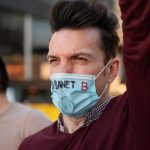
BlackDoctor.org, a health platform reaching 20 million people, has introduced a new initiative called Generational Health, aimed at linking science and culture to enhance health outcomes and longevity for Black families. The initiative was unveiled at the 2025 American Public Health Association (APHA) conference in Washington, D.C., marking the start of a five-year national effort to reshape how health is understood, taught, and passed down through generations.
According to BlackDoctor.org, the Generational Health program seeks to expand educational opportunities for historically excluded students pursuing careers in healthcare while also addressing disease states and medical conditions that disproportionately affect Black communities.
Aki Garrett, president and chief operating officer of BlackDoctor Inc., said the initiative would build on the organization’s 20-year legacy of providing trusted health information and fostering community engagement. The effort will involve partnerships with pharmaceutical brands to help shape culturally grounded care.
“Generational Health is a movement that is going to redefine a blueprint for longevity,” Garrett said. “We’re going to use methods of storytelling, first-person narratives, interviews, and engaging with the broader healthcare ecosystem as well as patients to really understand how we can connect the past with the present, science and cultural storytelling, to develop a new generational course for a diverse patient population, and, specifically, the Black patient population here in America.”
Garrett explained that the initiative aims to shift the narrative around Black health by focusing on possibilities rather than disparities. He said the organization envisions a future where wellness and longevity are standard expectations within the community. He described Generational Health as redefining health and longevity as more than biological factors, framing them instead as inheritances shaped by history, beliefs, and shared family knowledge.
Founded in December 2005, BlackDoctor.org began as an internet health portal offering information on medical issues and physician access. The platform now engages six million monthly website visitors and uses a blend of culture, content, and technology to promote improved health outcomes among Black consumers.
Through Generational Health, the organization will also focus on increasing representation within the healthcare workforce. Garrett cited data showing the U.S. Black population has grown by 33% since 2000, totaling 48.3 million people and representing 14.4% of the country’s population. However, he noted that the proportion of Black healthcare professionals remains significantly lower. The initiative’s five-year plan includes efforts to expand diversity in the field through mentorship, coaching, and collaboration with educational institutions.
BlackDoctor.org plans to work with Black medical institutions and organizations focused on healthcare workforce development at both high school and university levels. Garrett said the goal is to create pathways for students to pursue healthcare professions, including roles such as physicians, nurses, therapists, and social workers.
The organization also intends to strengthen partnerships with health systems and national institutions to address community mistrust in healthcare. Garrett stated that part of BlackDoctor.org’s mission is to act as a trusted intermediary between patients and providers to foster understanding and confidence in medical systems.
During the APHA conference, BlackDoctor.org hosted a daylong Generational Health panel featuring health experts, advocates, and pharmaceutical executives. Speakers included Mathew Knowles, Rosalind Hollingsworth of Moderna, Pamela Barnes of Bristol Myers Squibb, and Emma Andrews of Pfizer. Andrews described the initiative as “a groundbreaking shift in how communities understand and pass down health knowledge.”
Garrett said the organization’s established partnerships and community connections would help sustain the movement. BlackDoctor.org plans to host additional Generational Health summits in February and April.







